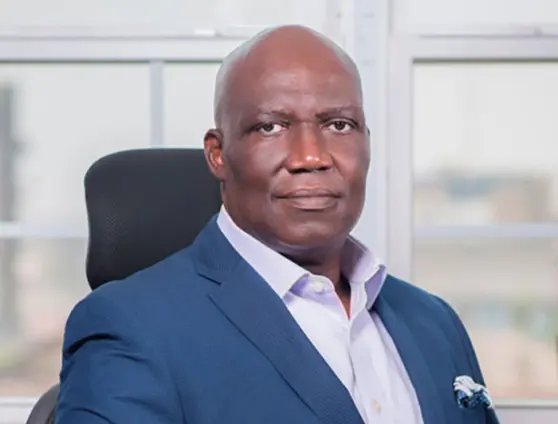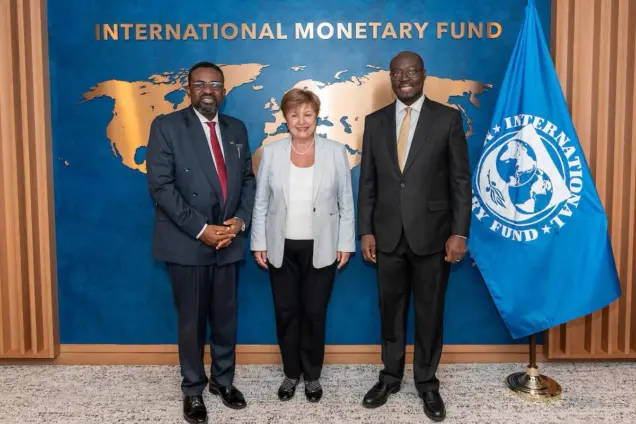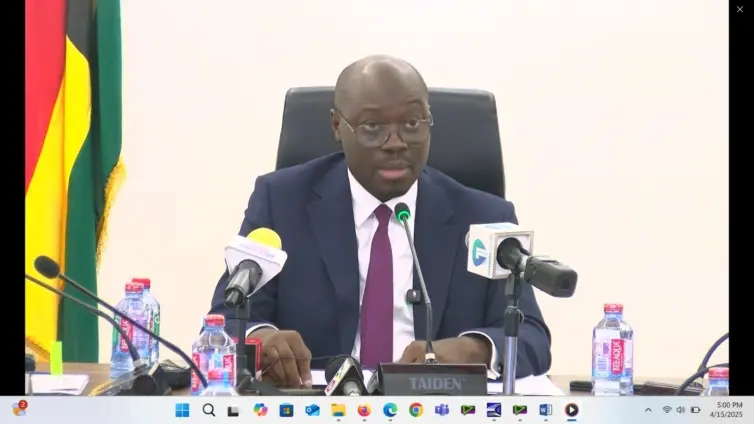The role of a central bank board member typically involves governance and oversight, but recent events at the Bank of Ghana (BoG) have stirred debate about the boundaries of those responsibilities. Economist Kenneth Kwamina Thompson has openly questioned the appropriateness of Dr. Isaac Adongo, a BoG board member, publicly commenting on operational matters, specifically regarding over-the-counter (OTC) dollar transactions. This raises critical questions about institutional roles and the potential for missteps in public relations. The core of Thompson’s concern centers on whether a board member should be involved in what is traditionally considered the domain of communication professionals. The debate highlights the nuances of maintaining a clear division between governance and public-facing communication, especially concerning sensitive financial matters like access to foreign currency. At issue is the potential for such statements to cause confusion and erode public confidence in the central bank’s established protocols for disseminating information. The implications of Dr. Adongo’s announcements about OTC dollar transactions have sparked a broader conversation about checks and balances within the institution.
Dr. Adongo’s recent pronouncements focused on intensifying restrictions on over-the-counter access to foreign currency. In an interview on PM Express with Evans Mensah, Dr. Adongo stated, “If you put your dollars in the bank account, it is okay. We are happy with that; you can only get dollars if indeed you are going to use them for a dollar-denominated transaction.” This announcement quickly ignited debate and drew criticism from various quarters. Detractors argued for the need for clearer communication and enhanced coordination from the central bank to avoid market disruptions and uncertainty.
The controversy surrounding Dr. Adongo’s statements stemmed primarily from a perceived lack of clarity and a concern that the announced restrictions might be overly restrictive. Businesses and individuals alike voiced apprehensions about the potential impact on their ability to conduct legitimate transactions requiring foreign currency. The absence of detailed guidelines and the abrupt nature of the announcement exacerbated these concerns, leading to calls for the central bank to adopt a more transparent and consultative approach in its communication strategy.
Ken Thompson’s critique directly addresses the role of a board member in such communications. Thompson questioned the rationale behind a board member’s involvement in what he perceived as a public relations matter concerning OTC dollar issues. “When I heard Dr. Isaac Adongo speaking about the over-the-counter dollar issue, I was thinking to myself, why would a board member get involved in something like that? It’s a PR matter. Why are you getting involved?” Thompson stated, highlighting his belief that such issues should be handled by communication professionals or executives directly managing monetary operations.
Thompson emphasizes that board members should generally refrain from engaging in public communication on operational matters. He believes that such issues are best addressed by those with specific expertise in communication or those directly responsible for implementing monetary policy. Thompson further elaborated, “There are a lot of issues related to it, and really, I wouldn’t have got involved in it at all as a board member.” This perspective underscores the importance of maintaining a clear chain of command and ensuring that public statements are aligned with the central bank’s overall communication strategy.
According to Thompson, a board member’s public pronouncements on operational matters can potentially create confusion, undermine the authority of communication professionals, and weaken institutional discipline. He notes, “What he did was almost rare. I haven’t come across those kinds of situations. That’s where I stand on the matter.” Thompson’s concerns highlight the importance of adhering to established protocols and maintaining a clear division of responsibilities within the central bank to prevent conflicting messages and maintain public trust. A well-defined communication strategy ensures that information is disseminated accurately and consistently, minimizing the risk of misinterpretation and market volatility.
Thompson suggests that Dr. Adongo’s actions could inadvertently undermine the authority of communication professionals within the Bank of Ghana. When board members publicly address operational matters, it can blur the lines of responsibility and create uncertainty about who is authorized to speak on behalf of the institution. This can lead to a breakdown in communication protocols and a loss of control over the narrative, potentially damaging the central bank’s reputation.
To improve its communication strategy, the BoG should prioritize clear, consistent messaging from designated spokespersons. This involves ensuring that all public statements are carefully vetted and aligned with the central bank’s overall communication objectives. Additionally, board members should adhere strictly to their governance roles and avoid public commentary on operational matters, deferring to the expertise of communication professionals and executives directly involved in monetary operations. By reinforcing these practices, the BoG can enhance its transparency, maintain public trust, and promote greater confidence in its operations.
Kenneth Thompson’s critique underscores the critical need for clearly defined roles and responsibilities within the Bank of Ghana. While Dr. Adongo may have intended to provide clarity regarding OTC dollar transactions, Thompson argues that such pronouncements from a board member can potentially create confusion and erode institutional discipline. Moving forward, the BoG should prioritize a communication strategy that emphasizes clear messaging and adherence to defined roles to maintain public trust and confidence in the central bank’s operations.
Image Source: MYJOYONLINE





















